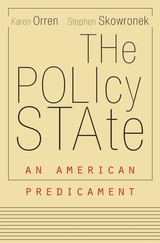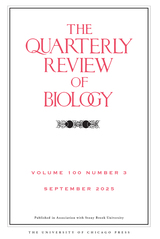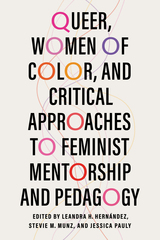
Has American democracy outstripped its constitutional accommodations?
Faith in the resilience and adaptability of the US Constitution rests on a long history of finding new ways to make the system work. In The Adaptability Paradox, political scientist Stephen Skowronek examines the rearrangements that regenerated the American government in the past and brings that experience to bear on our current predicament. He shows how a constitution framed in writing some 230 years ago can run into serious difficulties directly related to its long and impressive history of adaptation.
Skowronek connects questions about the Constitution’s adaptability to the challenges of democratization. For most of American history, serial rearrangements of constitutional relationships widened the government’s purview as a national democracy without giving either nationalism or democracy free rein. Skowronek argues that the politics of adaptation shifted fundamentally with the “Rights Revolution” of the 1960s and `70s when American national democracy approached the inclusion of all its citizens on equal footing. Since then, power and authority have been reconfigured in ways that have steadily magnified conflicts over the essentials of good order. Conservatives aim to dismantle a Constitution that progressives are intent on building upon, and the consensus necessary for a constitutional democracy to function effectively has all but evaporated. No longer a socially bound framework for national action, the Constitution has become an abstract matrix of possibilities, a disembodied opportunity structure open to starkly different, mutually unacceptable futures.
Rather than being liberated by this unbound Constitution, the American people now appear entrapped by it. Is it possible that the development of American democracy has exhausted the adaptive capacities of the Constitution? A timely reminder that constitutional democracies do not survive on faith alone, The Adaptability Paradox is a sober appraisal of the unfamiliar ground on which we now tread.

The steady accretion of public policies over the decades has fundamentally changed how America is governed. The formulation and delivery of policy have emerged as the government’s entire raison d’être, redefining rights and reconfiguring institutional structures. The Policy State looks closely at this massive unnoticed fact of modern politics and addresses the controversies swirling around it. Government has become more responsive and inclusive, but the shift has also polarized politics and sowed a deep distrust of institutions. These developments demand a thorough reconsideration of historical governance.
“A sterling example of political science at its best: analytically rigorous, historically informed, and targeted at questions of undeniable contemporary significance… Orren and Skowronek uncover a transformation that revolutionized American politics and now threatens to tear it apart.”
—Timothy Shenk, New Republic
“Wherever you start out in our politics, this book will turn your sense of things sideways and make you rethink deeply held assumptions. It’s a model of what political science could be, but so rarely is.”
—Yuval Levin, National Review
“A gripping narrative…opening up new avenues for reflection along methodological, conceptual, and normative lines.”
—Bernardo Zacka, Contemporary Political Theory


THIS EDITION HAS BEEN REPLACED BY A NEWER EDITION.
Stephen Skowronek's wholly innovative study demonstrates that presidents are persistent agents of change, continually disrupting and transforming the political landscape. In an afterword to this new edition, the author examines "third way" leadership as it has been practiced by Bill Clinton and others. These leaders are neither great repudiators nor orthodox innovators. They challenge received political categories, mix seemingly antithetical doctrines, and often take their opponents' issues as their own. As the 1996 election confirmed, third way leadership has great electoral appeal. The question is whether Clinton in his second term will escape the convulsive end so often associated with the type.
READERS
Browse our collection.
PUBLISHERS
See BiblioVault's publisher services.
STUDENT SERVICES
Files for college accessibility offices.
UChicago Accessibility Resources
home | accessibility | search | about | contact us
BiblioVault ® 2001 - 2025
The University of Chicago Press









